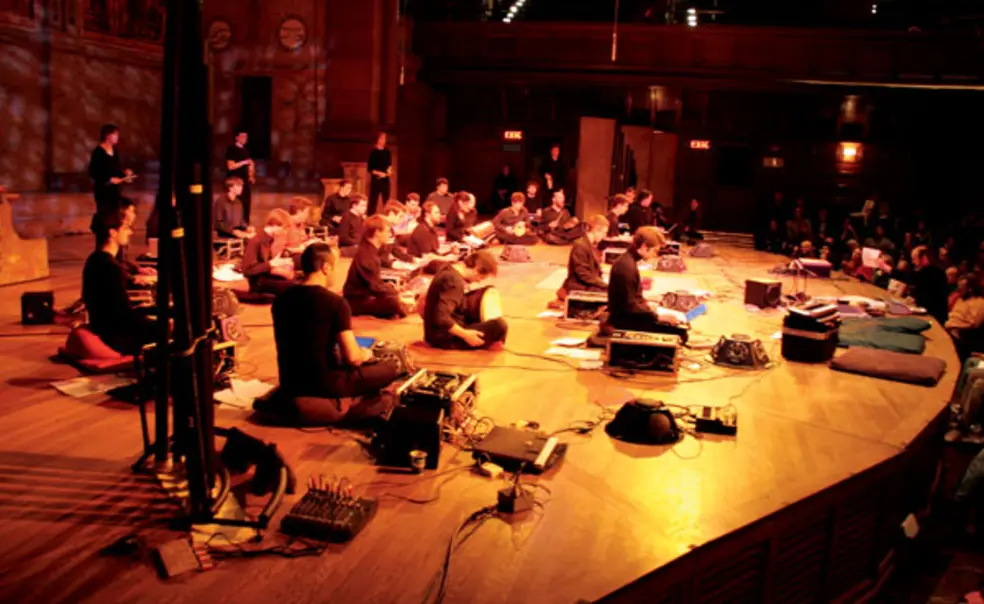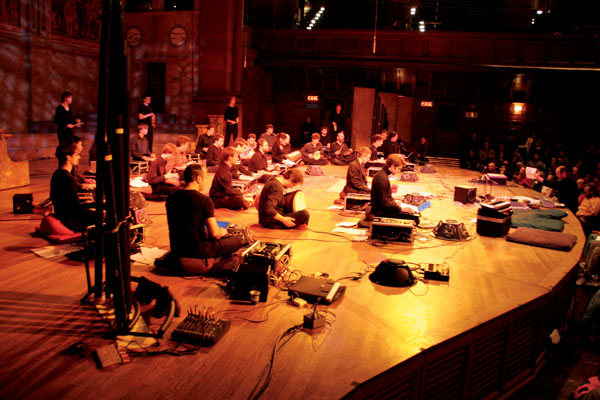PLOrk performs at Carnegie Hall debut
Sitting on pillows as they created music via their computers, speakers, and keyboards, eight members of the Princeton Laptop Orchestra brought their innovative music to a debut in Carnegie Hall on April 25. Dan Trueman, the ensemble’s co-founder and assistant professor of music, played the prelude to his composition, Silicon/Carbon: an anti-Concerto Grosso, on hardanger fiddle before the PLOrk musicians joined the American Composers Orchestra. The performance was part of the American Composers Orchestra’s Playing it UnSafe program, an initiative to explore highly experimental ideas.
The composers and orchestras performing in the program held open rehearsals that allowed the musicians to “respond to surprises [and] unexpected possibilities” and incorporate those elements into the final performance, explained Trueman. During Silicon/Carbon, PLOrk processes the sounds of the orchestra, “blending in seamlessly,” said Trueman, and at other times the “laptops act as a kind of funky metronome or beat box that the orchestra and conductor follow along with.” PLOrk musicians also play the laptops themselves as musical instruments, using the trackpads and the keys, and shaking and smacking the laptops like drums to make sounds.
PLOrk received a $238,000 Mac-Arthur Foundation grant to redesign and further develop a mobile, computerized music lab, which it hopes will enable students to make electronic music not just in rehearsal rooms, but anywhere on campus.













No responses yet